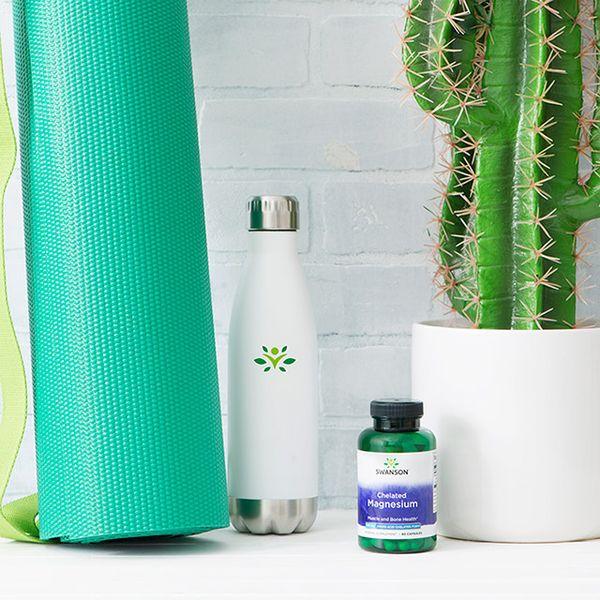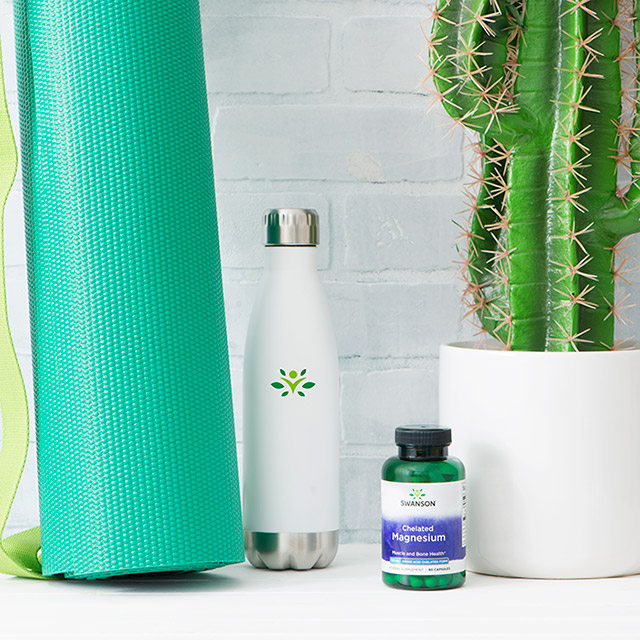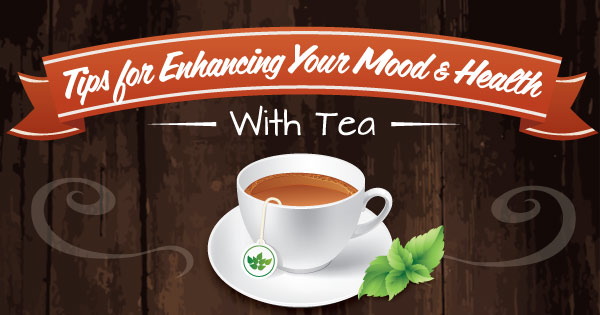Say Om: 6 Tips to Help You Relax and Reduce Stress
Take a deep breath, release it slowly, and say "oommm..." Do you need more oms in your life like we do? Almost everyone faces stress daily. Between work and home life, being there for our loved ones and other commitments, we manage a lot of responsibilities every day. Along with all those responsibilities comes the seemingly inevitable: stress. Yet, it doesn’t need to be that way. We know stress isn’t good for our bodies, and it can take a toll on our minds and bodies both over time. So, if we can’t avoid stress, then how can we find ways to reduce stress? From your diet to your mind, here are six tips to help you relax and reduce stress.

1. De-Stress with Your Diet
Sometimes stress-eating can be good for you. Stock up on these healthy foods that have stress-reducing benefits and try to nourish your body with these foods to help reduce your stress level.
- Chocolate & Cocoa: Who couldn’t use an excuse to eat more chocolate? Certain antioxidant elements in chocolate and cocoa, like polyphenols, can provide health benefits and protect your body from oxidative stress. Studies have shown that eating dark chocolate every day may lower stress hormones in your body too.1
- Avocados: Avocados are rich in B vitamins, which support healthy nerve and brain function. Vitamin B deficiencies have been linked to higher levels of stress and anxiousness, and supplementing your diet with vitamin B may help reduce occupational stress.2 Avocados also contain potassium and healthy monounsaturated fats.
- Nuts: Nuts are another great source of B vitamins. Also, since stress can make your immune system more vulnerable, the heart-supporting antioxidant vitamin E and the mineral zinc found in nuts can help give your immune system a much-needed boost, especially during cold winter months.
- Salmon: Omega-3 fatty acids in salmon can help protect your body from the negative effects of stress hormones and support your heart health. Studies suggest that taking omega-3 essential fatty acid supplements can help reduce anxiousness by up to 20%.3
- Oatmeal: Reach for this comfort food at breakfast to stimulate the production of soothing serotonin. Healthy carbohydrates like oatmeal help boost your serotonin levels and can help you feel satiated, reducing cravings. If you have a busy day planned, get ahead of the stress (and potential stress-eating) by having some oatmeal for breakfast.
- Herbal Tea: If you are feeling stressed, take a timeout with tea. The simple act of relaxing with a cup of tea can be a stress-busting ritual. Choose herbal teas with ingredients that help promote relaxation like Swanson Health 's 100% Certified Organic Chamomile Tea.
- Dark Leafy Greens: Leafy greens like spinach, kale and Swiss chard contain lutein, an antioxidant carotenoid that supports eye health, skin health and heart health. Plus, they contain folate, which helps your body produce serotonin and dopamine, two mood-regulating neurotransmitters. You can also use folic acid supplements to help fill any folate-related nutrient gaps.
2. Combat Stress by Exploring Essential Oils
Aromatherapy and essential oils have long been lauded for their ability to promote relaxation and relieve stress. Essential oils used in aromatherapy can be added to diffusers and oil burners or sprayed in the air around you. Some essential oils are safe to massage directly into the skin or add to lotions, but check the label first and do a test for skin sensitivity. Try these essential oils to combat stress:
- Lavender Oil Benefits – Lavender oil has a soothing, floral scent and may help reduce nervous tension.
- Rose Oil Benefits – Rose oil may lift your mood and promote tranquility.
- Ylang Ylang Oil Benefits – Ylang Ylang may relax your body and nourish your spirit.
- Chamomile Oil Benefits – Chamomile may be a calming scent that helps combat nervousness and agitation.
- Frankincense Oil Benefits – Frankincense may relieve stress and promote a sense of peace and relaxation.
- Vetiver Oil Benefits – Vetiver oil may be a soothing tonic for the nerves and calm the mind.
- Bergamot Oil Benefits – Bergamot oil may be relaxing, calm emotions and reduce tension.
See our Beginner’s Guide to Essentials Oils to learn more about how to use essential oils for stress reduction, whole-body health and to help freshen your home.
3. Add Vitamins and Supplements for Stress Relief
One of the best ways to beat stress, and cover nutrient gaps in your diet, is through stress-relieving supplements that can help give your body a tension-fighting advantage. Here are some of the best supplements to help reduce stress, promote relaxation and calm, plus help you get better sleep:
- Vitamin B Complex for Stress Relief – B vitamins support nerve and brain function and help the body make serotonin, norepinephrine and melatonin.
- Magnesium Benefits for Stress Relief – Magnesium decreases stress hormones and supports a healthy nervous system.
- Melatonin Benefits for Stress Relief – Melatonin helps regulate sleep and wake cycles, and getting enough sleep can help improve your mood and reduce stress.
- Valerian Root for Stress Relief – Valerian is calming and helps relieve anxiousness, promoting relaxation.
- Ashwagandha for Stress Relief – Ashwagandha may help neutralize the effects of stress on the body and strengthen the immune system.
- Rhodiola for Stress Relief – Rhodiola fights the physical and mental effects of stress by reducing stress hormones and providing mood support.
- Holy Basil Leaf – Available as a liquid, in a capsule and as a tea, holy basil is an herb native to India and is regarded as one of the most important plants in Ayurvedic practice. What makes the herb so unique is its remarkable anti-stress activity.
- L-Theanine – A popular choice among those looking for natural stress management, L-theanine is a unique amino acid that comes from green tea and delivers antioxidant properties. It helps promote healthy relaxation without drowsiness or any side effects associated with other options.
- 5-HTP – A neurotransmitter that supports your overall well-being, 5-HTP works within the body to promote healthy levels of serotonin, a hormone vital to healthy moods and sleep pattern.
4. Tune in to Your Body and Mind
There’s usually so much happening around us that tuning in to ourselves can get pushed aside. Being mindful is essential for combating stress. When you feel stressed, practice deep breathing exercises or take a walk to clear your mind. You can also promote relaxation by adding meditation to your morning routine and doing yoga, or by adding simple ways to move more during your day like making time for mini-workouts or a walk after dinner. Exercise helps your body to release feel-good endorphins that can help reduce stress and improve your mood.
5. Practice Single-Tasking to Reduce Stress
In a world where multitasking seems to be king, there are some surprising advantages to giving it up for good. Focus on one task at a time. Multitasking can be stressful and researchers have discovered that it is actually less productive than doing one thing at a time. Are you really doing your best if you're not completely focused on the task at hand? When you try to take on too many things at once, it’s hard to pay attention and this can have negative effects on your memory.4
6. Keep a Journal to Manage Your Stress
Track your habits and your feelings by keeping a journal or stress diary. Writing things down helps get them off your mind and gives you space to explore your thoughts and feelings thoroughly. Similarly, keeping a log of when you feel stressed and why can help you understand your biggest and most common stress triggers so you can prepare for them and manage stress more effectively.
Practice These Stress Relief Tips
To keep stress at bay, get stress-busting vitamins and nutrients from the foods you eat and choose supplements for stress and mood. Start a habit of being mindful and tuning in to what your body and mind need to stay healthy and happy. Try to banish multitasking and keep a journal or stress diary, especially during busy, stressful periods. Hopefully, these six tips on how to reduce stress help you relax more and stress less.

About Bushra Hassan, MBA, RD & LDN
Bushra is an expert in supplement development, nutrition education, wellness coaching, and product brand management. Her work focuses on diet and nutrition, digestive health, and integrative and functional medicine. She enjoys baking, trying new restaurants and exploring beautiful Chicago.
*These statements have not been evaluated by the Food and Drug Administration. These products are not intended to diagnose, treat, cure, or prevent any disease.
Sources
1. Al Sunni, A., & Latif, R. (2014). International journal of health sciences, 8(4), 393–401. Read source
2. Stough, C, et al. (2014) Nutrition journal, 13(1), 122. Read source
3. Kiecolt-Glaser, J. K., et al. (2011). Brain, Behavior, and Immunity, 25(8), 1725–1734. Read source
4. Gorlick, A. Media Multitaskers Pay Mental Price. Stanford University. August 24, 2009. Accessed Aug 2025. Read source




